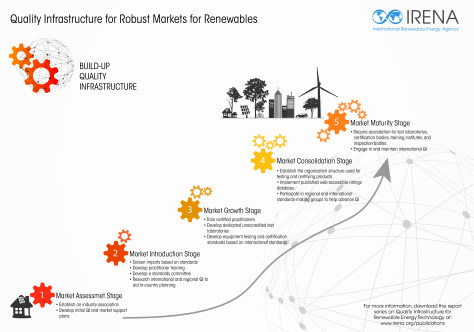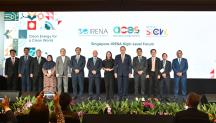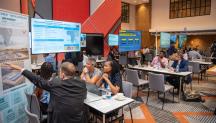

Supporting Quality Control for Renewable Energy Technologies
Newsletter
The United States experienced a wave of interest in solar heating and other forms of renewable energy in the 1970s, due to incentive policies borne out of an energy crisis. Yet by the 1980s, the market for solar heating collapsed due in part to low-quality equipment, which then led to the loss of credibility for renewable energy technologies.
Interest in renewables is on the rise again, with more than USD 260 billion invested in renewable energy deployment in 2014. Biomass, geothermal, hydropower and on-shore wind, in locations with good physical resources, are now in the range or lower than fossil fuel electricity generation costs according to IRENA’s costing studies. IRENA’s analysis also shows that doubling the share of renewables in the global energy matrix by 2030, to account for 36 per cent of the total final energy consumption, is feasible and cost-effective considering externalities such as health and climate change. However, to achieve such a goal, the rate of deployment for renewable energy technologies has to be accelerated.
One of the challenges to deployment is that there is still a perceived technical risk associated with renewables, particularly in countries with limited experience using renewable energy technologies. Investors might be deterred if the reliability of alternative technologies is in question. Therefore, there is a need for instruments like international technical standards to mitigate such technical risk to ensure the quality of renewable energy projects.
“With renewable energy technologies becoming competitive and globally traded, additional efforts are needed to protect markets from poor-quality products and services, which can seriously delay renewables deployment growth. Therefore, it is of paramount importance to implement instruments to control the quality of renewable energy products and services, mitigate technical risk and build up market trust. Operationalising international technical standards via testing and certification can address risk and at the same time spur technological improvements.” – Dolf Gielen, Director of IRENA´s Innovation and Technology Centre
To support the development of quality control and standards, IRENA launched a report series Quality Infrastructure for Renewable Energy Technologies during the Workshop on Conformity Assessment held this week in Geneva, Switzerland. The reports give detailed information on how to develop quality infrastructure for small wind turbines and solar water heaters and provide guidelines for policy makers. These renewable technologies are part of a wider portfolio that is considered critical for meeting the COP21 climate change objectives.
Specifically, the series provides detailed guidelines for two industry sectors; solar thermal energy for the building sector and wind power for rural and remote areas. It finds, for example, that products which do not meet minimum quality requirements are blocking the growth of small wind turbine markets. At present, small wind turbines only account for 0.7 GW of global installed capacity. However, the potential is more than ten-fold by 2030 if the needed quality infrastructure is built, providing electricity solutions to remote areas, integrating into mini-grid systems and even distribution grids.

Infographic from the Quality Infrastructure Report Series
In addition to building market trust by screening poor-quality products and services, quality control and standardization lead to technology improvements. In the State of Florida, United States, a compulsory testing standard for solar water collectors drove a 36 per cent improvement in their efficiency in a five-year period.
The report series also emphasises that implementing quality infrastructure is dependent on the country context and the status of the market for a specific renewable energy technology. The reports provide detailed guidance for developing the quality infrastructure incrementally hand-in-hand with local market development. Policies and regulations for renewable energy technologies can greatly benefit from incorporating quality control measures.
Read the Quality Infrastructure report series:




